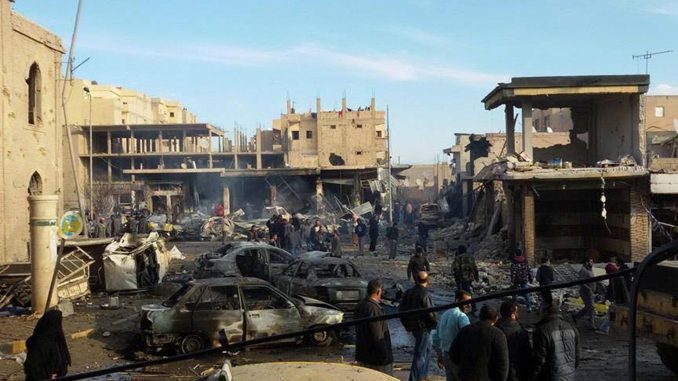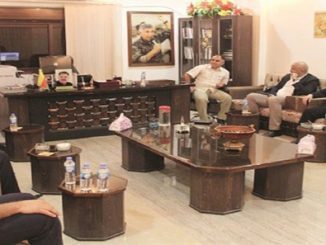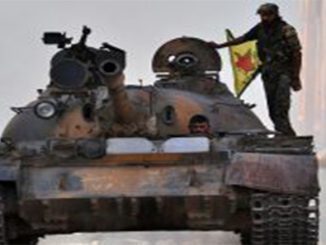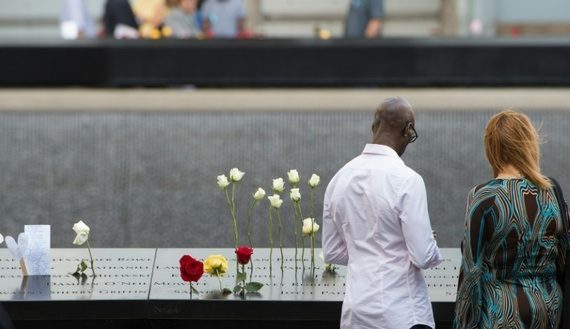
As the US-backed military operations against ISIS in Syria’s Raqqa is about to start in few days, the fate of the civilians trapped there became a major concern, as hundreds of thousands are threatened by the US-coalition airstrikes.
The Syrian Democratic Forces (SDF) alliance, which is dominated by the Kurdish YPG militia, is supported by the US as the latter uses them in its war against ISIS.
Air strikes carried out by the US-led coalition and a long fight by the SDF forces ended in recapturing Manbij from the control of the Islamic State (ISIS) group last year.
The SDF, backed by US coalition, launched also a campaign with the ultimate aim of capturing Raqqa in November and succeeded in encircling the city. Recently, they launched an assault on Deir Ezzor province to cut the road to Raqqa and surrounding ISIS effectively and were able to achieve this goal after fierce clashes.
Kurdish officials said the final military operations against ISIS in Raqqa, where more than 200.000 civilians still live, will start in early April.
The US-coalition has killed hundreds of civilians in its airstrikes against ISIS in Syria and Iraq, though it only acknowledged a small number of the deaths. The Raqqa civilians are now in a grave danger as the battle became certain.
Warning for the civilians
The US-coalition airstrikes in Raqqa have always left civilian casualties, but the toll is expected to rise in the densely-populated city of Raqqa.
In the last incident, at least 22 civilians were killed and scores injured in US-led coalition airstrikes on the Islamic State group’s Syrian stronghold of Raqqa, local sources and a monitor said last week.
“International coalition warplanes hit a school complex overnight in the village of Kassrat, south of Raqqa, housing displace people from Aleppo province, killing 17 civilians, mostly women and children,” local activist group Raqqa is Being Slaughtered Silently said.
The group added that another 15 people were injured in the airstrike.
In addition, the US-led coalition warned residents of the Syrian city of Raqqa to avoid boats and ferries regularly used by the militants to escape airstrikes.
The leaflets, which are approximately the size of a US dollar bill, say in Arabic “ISIS is using boats and ferries to transport weapons and fighters. Do not use ferries or boats, air strikes are coming.”
“As our partner forces prepare to liberate Raqqah, the Coalition routinely drops leaflets as an effective means of communicating messages to civilians who are trapped in the city and subject to the barbaric rule of ISIS ,” a coalition spokesperson said.
The spokesperson added the primary reason for the leaflets is to mitigate civilian casualties as much as possible during the operation to retake the city from ISIS.
On Thursday, the activist group Raqqa Is Being Slaughtered Silently reported that the coalition was warning civilians in leaflets to leave their homes after 9 p.m. because coalition forces planned to bomb the city.
The reports came as Asharq Al-Awsat newspaper reported Daesh militants were building fortifications around the city.
Hundreds of others killed by coalition
The US-led coalition fighting ISIS in Syria and Iraq said earlier this month that its raids had unintentionally killed at least 220 civilians since 2014 in both countries.
Critics say the real number is much higher.
Amnesty International said in October 2016 that the US-led coalition has killed at least 300 civilians in Syria.
“In its backing of anti-Isis ground forces during this summer’s Manbij campaign, the US-led coalition killed some 250 or more civilians, and yet it does not acknowledge them,” said Neil Sammonds, Amnesty’s researcher for Syria.
It is a conservative toll compared with estimates from other monitoring groups, which put the number of deaths from coalition bombing at 600 to 1,000. The monitoring groups include the Syrian Network for Human Rights, the Syrian Observatory for Human Rights and the Violations Documentation Centre.
However, the US administration stick to their story and numbers.
US Central Command, which leaders Operation Inherent Resolve, confirmed 21 civilian deaths in nine new incidents in its latest round of investigations.
“We regret the unintentional loss of civilian lives resulting from coalition efforts to defeat Isis in Iraq and Syria and express our deepest sympathies to the families and others affected by these strikes,” a spokesperson said.
The deadliest single strike was in Mosul on 13 January, where investigators found eight civilians were “unintentionally killed” in an operation targeting Isis fighters in a house.
Anyway, the US administration say that they tke every measure to assure their forces don’t kill civilians by mistake.
“Although the Coalition takes extraordinary efforts to strike military targets in a manner that minimises the risk of civilian casualties, in some incidents casualties are unavoidable,” a spokesperson for said.
“In each of the incidents, the investigation assessed that although all feasible precautions were taken and the decision to strike complied with the Law of Armed Conflict, unintended civilian casualties unfortunately occurred.”
The US administration admitted it was unable to “fully investigate all reports of possible civilian casualties using traditional investigative methods, such as interviewing witnesses and examining the site”, saying it instead interviews pilots, reviews strike footage and analyses information from partner forces, governments, humanitarian groups, traditional and social media.
Upcoming Raqqa battle and the Kurdish militias
A few hundred marines with heavy artillery have been deployed to Syria in preparation for the fight to oust Islamic State from its self-declared headquarters of Raqqa, according to US officials.
The deployment is temporary but is a sign Donald Trump’s White House is leaning toward giving the Pentagon greater flexibility in making routine combat decisions in the fight against ISIS.
A spokesman for the U.S. Pentagon said no decision had been made yet on the Raqqa offensive, but according to Kurdish officials, the Kurdish militias will be the leading power in this offensive in addition to the newly deployed US forces.
Sipan Hemo, A YPG commander, said: “Regarding the decision to liberate Raqqa and storm it, the matter is decided and at the start of the month of April the military operation will begin.”
He added: “We believe that liberating Raqqa will not take more than a number weeks.” His comments were relayed via a YPG spokesman.
Hemo said YPG militia would storm Raqqa alongside Arab fighters in the U.S.-backed Syrian Democratic Forces (SDF). “Of the total force for storming Raqqa, 25 percent are YPG, who are set apart in their combat experience and high-level command skills directing battles in cities,” he said.
The Pentagon spokesman, Navy Captain Jeff Davis, said: “We have not made any decisions on how and when we will move in for the liberation of Raqqa.”
Asked about Hemo’s assessment that it would take weeks, Davis said he would not want to put a timetable on how long the operation could take. Islamic State had had ample time to build defenses, emplacements, fighting positions, and to rig houses and cars with improvised explosive devices, he said.
“All of these things await whoever moves in to ultimately liberate Raqqa. And if you compare it to other, similar sized cities in Iraq, you’ve seen that these things do tend to take a bit more time than that,” he said.
Encircling Raqqa
Backed by U.S. air strikes and special forces, the SDF cut the last main road out of the city earlier this month.
“Cutting the road between Raqqa and Deir Az Zor means that practically the encirclement of ISIS capital is complete by land,” the Kurdish military sources told Reuters.
“It is a big victory but there is still a lot to accomplish,” the source said, speaking on condition of anonymity.
The development, confirmed by the Observatory, marks a major blow against the Islamic State group that is under intense military pressure in both Syria and Iraq.
It is losing ground to three separate campaigns in northern Syria by the U.S.-backed Syrian Democratic Forces (SDF) militias, the Russian-backed Syrian army, and Turkey and allied Syrian rebels.
The SDF advance means all main roads out of Raqqa are now cut. The U.S.-backed militias now plan to capture surrounding rural areas and advance towards the city to isolate it completely, SDF spokesman Talal Silo told Reuters.
The only way out of Raqqa now is over the Euphrates River that borders the city to the south, all bridges across which have been destroyed, the Syrian Observatory for Human Rights, a Britain-based war monitor, has said. The Observatory estimates the city’s population at 200,000 and says it believes many of the IS leaders are still there.
Hemo said preparations for the attack were advanced: “The combat readiness is adequate with regards to weapons, equipment and the number of fighters, particularly after the encirclement of the city and its isolation from three sides – the west, the north and the east.”
The U.S.-led coalition last week announced that a Marines artillery unit had been deployed to Syria to help accelerate the campaign to defeat Islamic State at Raqqa, adding to some 500 U.S. forces already in Syria.
A second Kurdish military source said: “It is clear that American forces are increasing in numbers and equipment in northern Syria with the aim of creating a strategic balance and giving more momentum to the Raqqa battle and what comes after it. This momentum is subject to increase as the actual date for the battle of Raqqa draws near at the start of April.”
The Syrian crisis began as a peaceful demonstration against the injustice in Syria. Assad regime used to fire power and violence against the civilians and led to armed resistance. 450.000 Syrians lost their lives in the past five years according to UN estimates, and more than 12 million have lost their homes.



